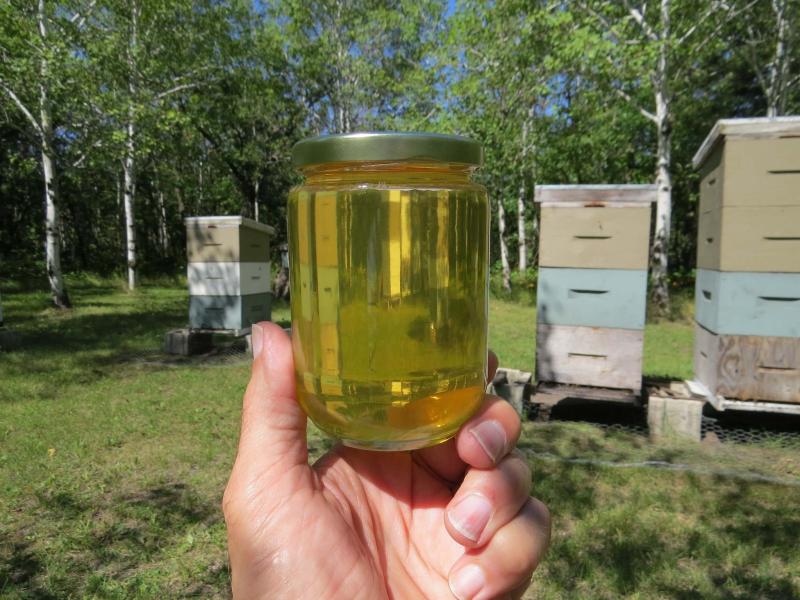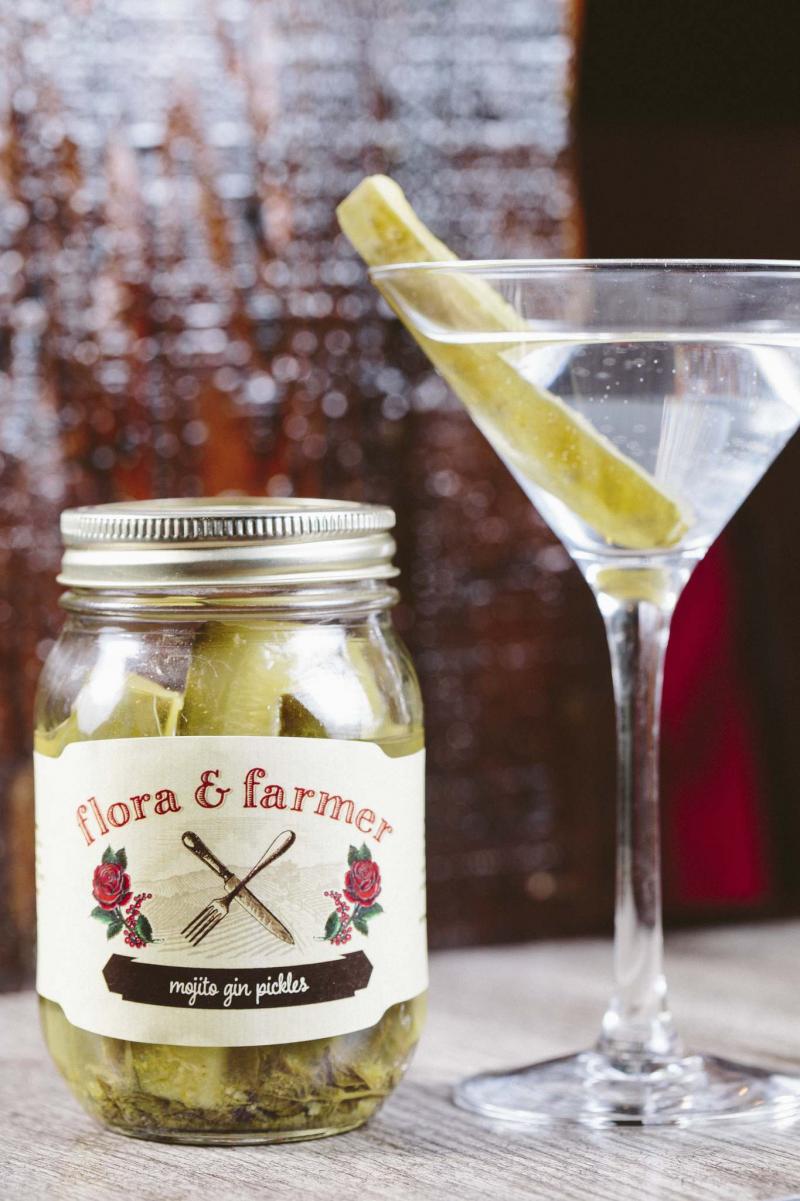
Dwayne Larson Photography
Flora & Farmer’s Kim Bialkowski can’t keep her Mojito Gin Pickles from flying off the shelves, but she promises to produce even more next year.
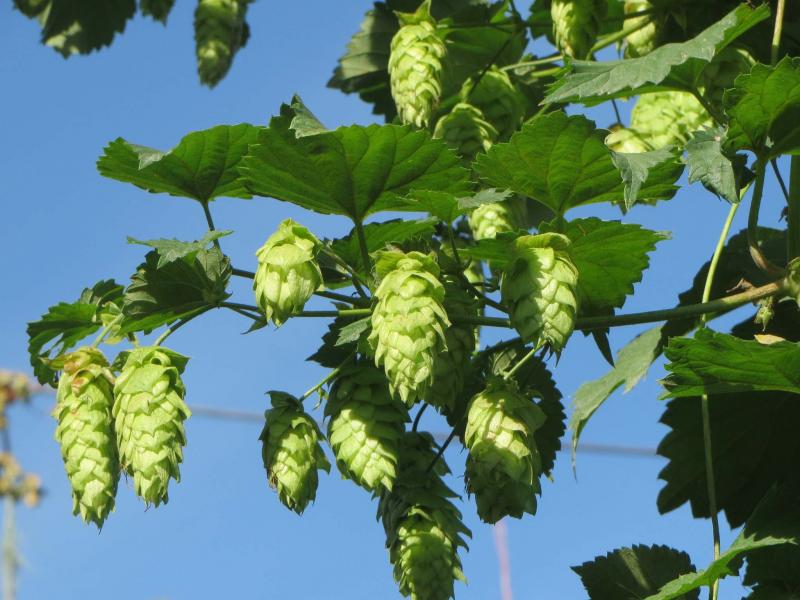
Prairie Gem Hops
Prairie Gem's hops are mostly hand-picked at harvest time, starting in September, and are used by both craft and home brewers all over the province.
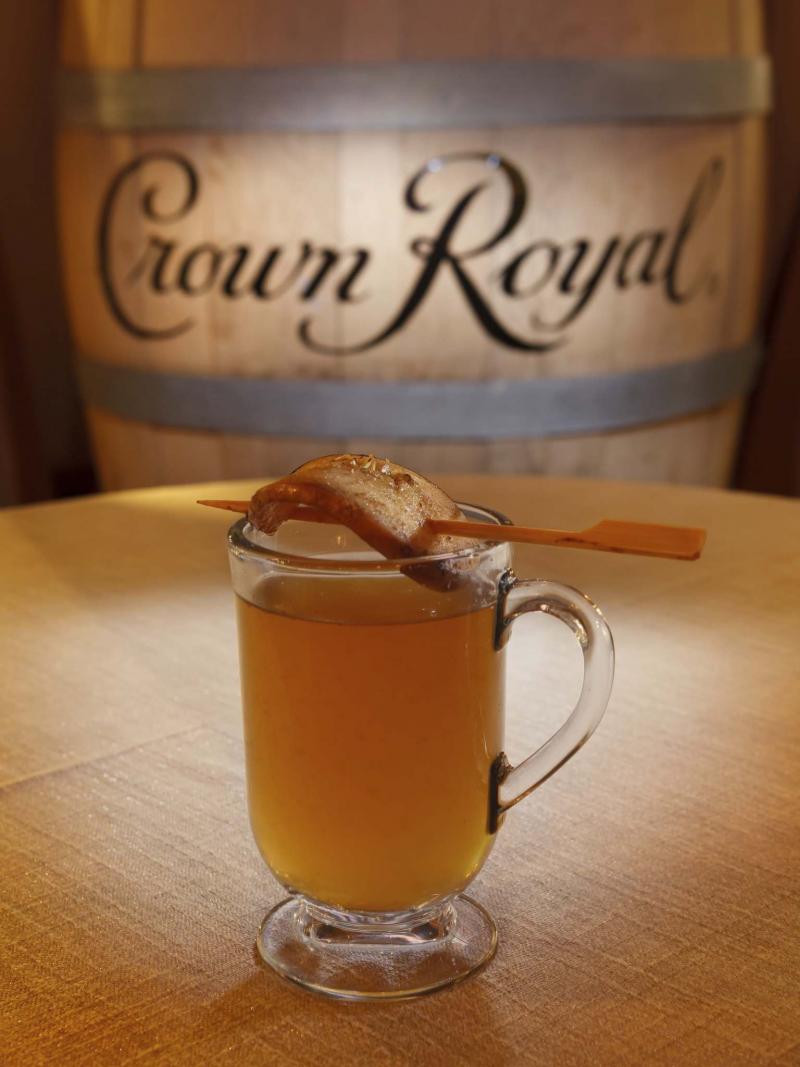
Jeremy Dueck Photography
Cocktail bartender Joel Carleton's slow-cooked hot toddy recipe entices with its heady aroma and uses locally pressed apple cider.
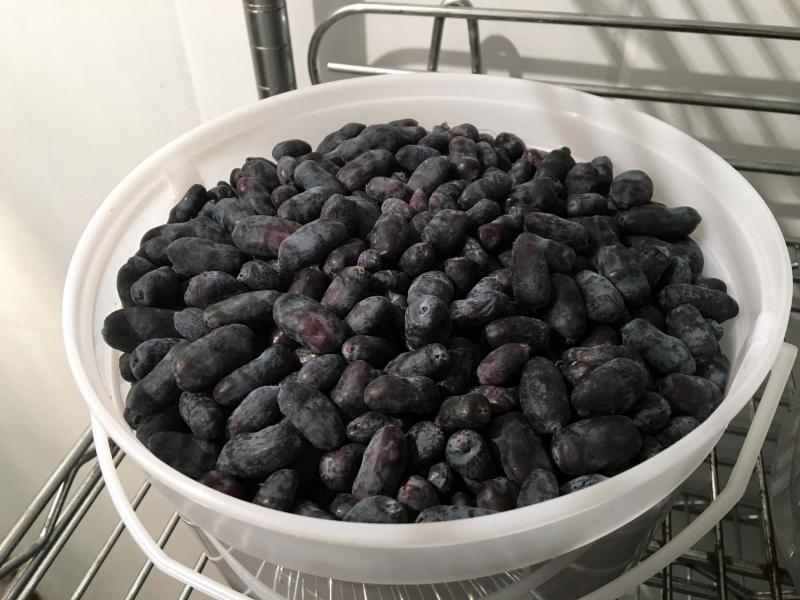
Riverbend Orchards
Rigby Orchards makes a wine from haskap berries, which are tart in flavour and rich in bioflavonoids.
Can I interest you in a glass of artisanal rosé-style wine made with the sweet-tart flavours of Prairie-grown haskap berries, or would you prefer mulled or chilled white honey mead brewed by an estate winery in Killarney?
Or perhaps you would like to start with a hot toddy made with premium cider that has been hand-crafted from Manitoba-grown apples and flavoured with warming spices and a splash of Canada’s finest whisky with piquant notes of Manitoba-grown rye grains.
Aromatic, locally grown hops are on the drink menu, too, if your palate craves crisp craft beer.
This season, Manitoba’s distinctive flavours and natural botanical ingredients will be on tap as hosts and their guests sip and savour signature beverages. Joel Carleton, a cocktail bartender from the Bee’s Knees Cocktail Collective and president of the Manitoba Bartenders Guild, specializes in creating satisfying drink recipes.
Carleton’s personal mantra is that a drink is made memorable when it is "created in concert with the imbibers, culture and nature of the place where it is created."
Carleton, who gives tutorials on how to mix, stir and shake the perfect drink, likes to play with seasonal fruits and herbs.
Raspberries, garden-fresh or frozen, star in his favourite recipe for raspberry cordial. Blending a handful with one part water and one part sugar, Carleton steeps the concoction in a refrigerator for 24 hours. He may also add fresh rosemary or basil.
"Once strained," Carleton says, "the mix yields a very rich, vibrant, ruby-hued liquid that lasts for three to four weeks in the fridge and serves as a great application in numerous cocktail recipes."
To make a raspberry whisky sour, Carleton fills a cocktail shaker with 30 ml raspberry cordial, 30 to 60 ml of Crown Royal blended whisky (depending on how much the imbiber requests) and 30 ml freshly squeezed lemon juice.
For a creamy froth on top of the drink, Carleton adds farm-fresh egg whites prior to shaking and strains the mix into a rocks glass over fresh ice.
At a mixology party hosted by the Winnipeg Art Gallery in November, Carleton served hot toddies. Always a crowd pleaser, his slow-cooked hot toddy recipe entices with its heady aroma.
Using a medium-sized slow cooker, Carleton adds two parts locally pressed apple cider to two parts water and one part fresh lemon juice.
He substitutes Manitoba honey for sugar for the ease of balancing flavours, adding one half to one part honey, depending on taste and its thickness or sweetness. Warming spices such as star anise, clove, nutmeg and green cardamom pod are crushed whole and placed into a tea ball.
Turn the slow cooker on the warming setting and allow the character of the spices to permeate the entire liquid for about four hours, Carleton recommends, timing the process so it is ready when your guests arrive. To serve, he pours 15 to 30 ml of Crown Royal whisky into a coffee mug, then ladles the warm mixture over top and garnishes with a skewered apple slice, rolled in cinnamon sugar.
"If you have a brûlée torch," Carleton says, "firing the garnish gives the cinnamon sugar a caramelized aroma that pairs nicely with the hot toddy."
Whatever favourite drink recipe you decide to serve your guests, Manitoba is home to an array of locally crafted wines, spirits, beers and ciders. Local producers take their craft seriously.
Rigby Orchards Estate Winery is located on a 14-acre homestead family farm established in 1882. Owned and operated by Grant Rigby, it is the first winery in Manitoba, licensed in 1999. One delicious offering is Rigby Orchards White Mead (low in alcohol — about eight per cent). It’s a honey wine made from honey bee-gathered Prairie nectars (canola, clover and dandelion), which are collected by apiarists with the Manitoba Co-operative Honey Producers and fermented with water at Rigby Orchards. Imbibers enjoy the clean purity of its bouquet and a tradition that is steeped in history.
Punch recipes sometimes have a cloying sweetness. For a punch flavoured with a more complex fruitiness, try Rigby’s recipe for mulled mead fruit punch. Start with your favourite local U-pick fruit frozen this past summer at its peak of freshness — strawberries, raspberries, cherries, sea buckthorn, blackcurrant, goose berry or aronia. Sliced apples can be used, as well. Place fruit in a saucepan, cover with water, heat to just under a boil, then crush the berries with a fork and simmer for one minute.
Decant or pour through a screen to remove the pulp. To serve warm, pour three quarters of the hot fruit juice into a glass and add one quarter White Mead. The simply sensational version I sampled was made with aronia, a black chokeberry that is grown at Riverbend Orchards in Portage la Prairie.
Another tasty wine from Rigby Orchards is Haskap Berry Wine, a deep burgundy red, rosé-style dry dinner wine made from Prairie-grown Borealis honeyberry (haskap) and the northern jewel cultivar of haskap. Rich in bioflavonoids and pleasingly tart, pair it with your favourite cheese or meat dish. For a complete listing of Rigby Orchard products, visit liquormarts.ca.
When customers at Crampton’s Market wanted apple cider made with Manitoba-grown apples, Erin Crampton bought an apple press and began pressing apples. Now in her third year of doing it, Crampton has acquired a more efficient continuous-belt press to meet demand, pressing more than 11,000 kilograms of apples into cider this year alone. Unfiltered, this premium cider’s cloudy haze tells buyers it’s the real thing. Available for purchase online, visit cramptonsmarket.com.
The popularity of craft beer continues to grow with local brewers sourcing or growing their own hops and Manitoba barley. The mature female flowers of hops (humulus lupulus) are one of the main ingredients in beer, acting as a preservative as well as adding the distinct bitterness and aroma that is characteristic of the beverage. Sandra Gowan, a hops farmer and owner of Prairie Gem Hops of Manitoba (north of Winnipeg), has been growing commercial brewing hops since 2009. Today, she grows 19 different varieties, shipping both dried, vacuum-sealed hops and rhizomes to micro-brewers and home-brewers across Canada.
"Hops are like grapes — they impart their own terroir," says Gowan, whose high-quality hops are mostly hand-picked at harvest time starting in September.
Want to try brewing your own beer? Prepackaged Prairie Gem hops are available at local brewing supply stores. You can also contact Gowan directly by visiting prairiegemhops.com.
A more recent entry is Tall Grass Vodka, a craft vodka made with hand-milled Manitoba red winter wheat and rye. Capital K Distillery, located at 1680 Dublin Ave., is Manitoba’s first family-owned and -operated producer of handcrafted spirits. Distillery tours and tastings are available.
Would you like a pickle with that? Flora & Farmer’s Kim Bialkowski can’t keep up with the demand for her Mojito Gin Pickles. A nice accent in a martini, Bialkowski makes a huge batch in the summertime using organic pickling cucumbers. Other ingredients include mojito mint, juniper berries, lime, white wine vinegar and 30 ml of gin. With the last jar snapped up, Bialkowski promises to make even more next year.
colleenizacharias@gmail.com

